Bloating is a common stomach problem that feels like it is overly full or stretched, and can be uncomfortable or painful. At times, bloating is accompanied by symptoms such as cramps, burping, diarrhea, constipation, swelling, and a lot of gas. This happens when liquid, gas, or solids pool in a part of your gut, which causes the organs in the abdomen to be stretched.
Bloating is usually caused by changes in diet or an increased intake of salty foods and refined carbohydrates. Some of the general guidelines to prevent it include cutting down processed and fatty foods, eating at least 30 grams of fiber per day, adding a variety of fruits and vegetables to the diet, drinking plenty of water, and engaging in physical activity for 10 to 30 minutes a day.
It is important to know that what you eat and drink can significantly affect bloating and other digestive issues. Many foods are known to promote regularity, prevent fluid retention, and enhance gut health, all of which help to reduce bloating.
Bloating is a common problem caused by a number of conditions, and there are several common foods and drinks that help reduce bloating by alleviating inflammation and constipation and creating a healthy fluid balance.
Here are the 10 best foods that can help reduce bloating.
1. Cucumber
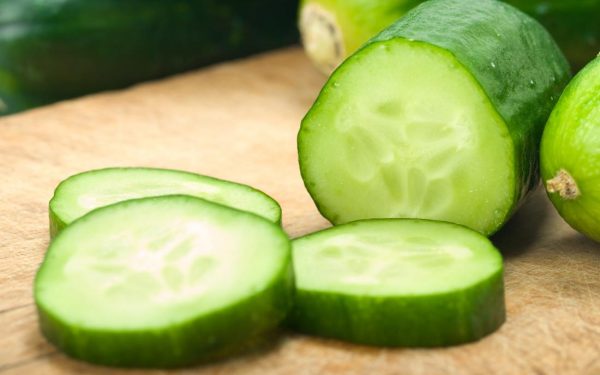
Experts believe that cucumbers are a great cure for bloating. About 95 percent of a cucumber’s weight is water, which helps to reduce water retention, inflammation, and consequently, bloating. Cucumbers are loaded with nutrients such as potassium and fiber, which links them with good gut health and improved bowel movements.
2. Greek Yogurt
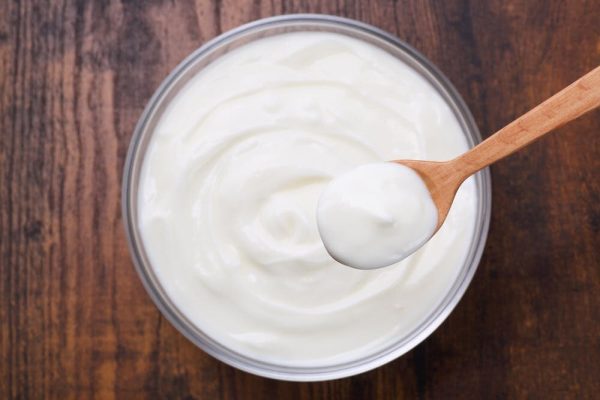
Dairy products usually cause bloating but when it comes to yogurt, it all depends on the kind you consume. Greek yogurt is packed with probiotics that are known to significantly improve gut health. Probiotics are a beneficial type of bacteria that improve stool frequency and consistency to promote regularity. Also, Greek yogurt contains the active cultures lactobacillus and acidophilus which help to relieve bloating.
3. Bananas
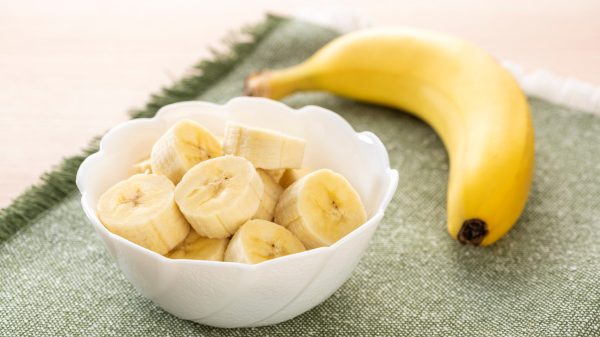
Bananas are highly nutritious and excellent sources of fiber, potassium, and healthy intestinal bacteria.
Bloating can sometimes be due to constipation, and a high-fiber diet can help prevent constipation by softening the stool and increasing its transition time. Additionally, healthy intestinal bacteria in bananas can help alleviate stomach bloating as optimal gut health requires a balance of good and bad bacteria in the gut.
Thus, the high fiber, potassium, and healthy bacterial content in bananas help prevent bloating and water retention in the body.
4. Papaya
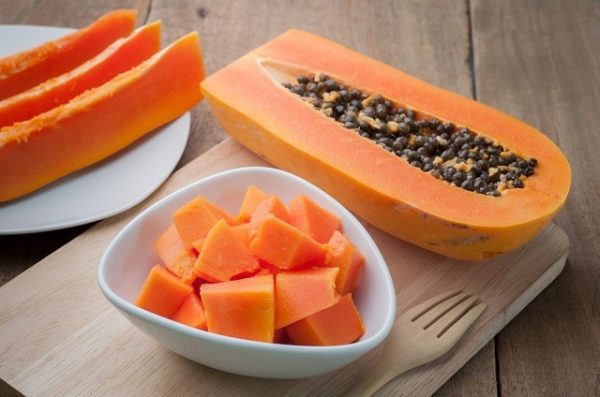
Another fruit that instantly relieves bloating is papaya. While its flesh has a sweet, juicy flavor, the skin is where the additional benefits lie.
Papaya skin contains an enzyme called papain that helps to break down proteins in the gastrointestinal tract. This encourages healthy digestion that leads to reducing the symptoms of bloating.
Papayas are loaded with fibers and anti-inflammatory properties that keep the digestive system running smoothly.
5. Fennel Seeds
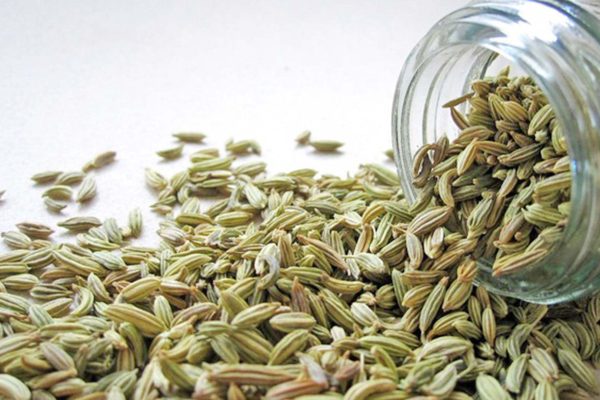
Fennel seeds have proven to be effective in fighting digestive problems, including gas and constipation. They relax gastrointestinal tract spasms and in doing so, relieve bloating. Fennel seeds also have antimicrobial properties that help keep gut pathogens in check.
A tablespoon of fennel seeds has more than two grams of fiber, and they can be consumed directly or steeped to make fennel tea.
6. Peppermint Oil

Peppermint oil is widely known for its numerous therapeutic effects on the digestive system. Studies have shown peppermint oil to decrease inflammation and treat symptoms of Irritable Bowel Syndrome (IBS) like stomach pain, constipation, and bloating.
It helps to relax the digestive system and prevents muscle spasms in the stomach and intestines, which helps to relieve bloating.
7. Celery
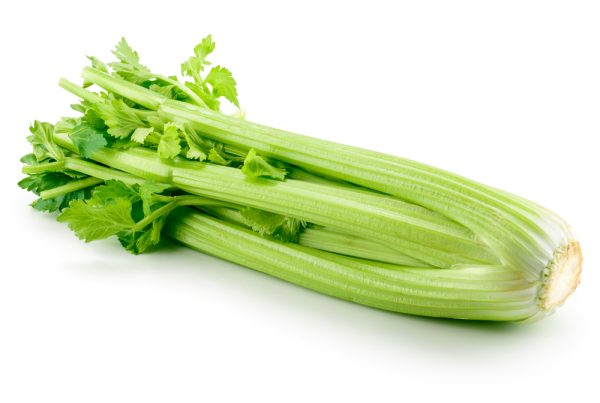
Celery is a low-calorie food comprising 95 percent water. In addition to its high water content, celery contains mannitol — a type of sugar alcohol that is known to soften the stool by attracting water into the digestive tract and promoting regularity.
Moreover, celery is considered a natural diuretic that removes excess water and sodium from the body. This helps to alleviate bloating.
8. Ginger
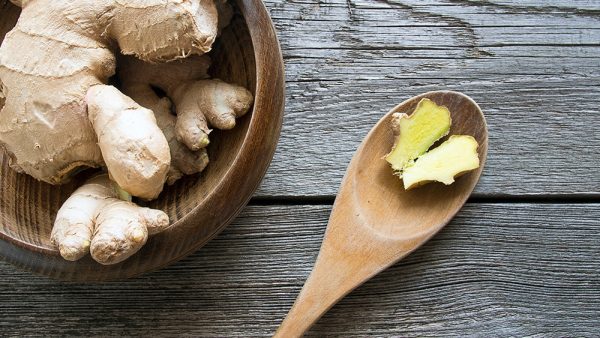
Ginger is a herb that is widely used to treat a range of digestive conditions. It contains the enzyme zingibain which helps to break protein down more efficiently to promote healthy digestion.
Several studies have shown that ginger could speed stomach emptying to prevent bloating and feelings of fullness.
9. Turmeric
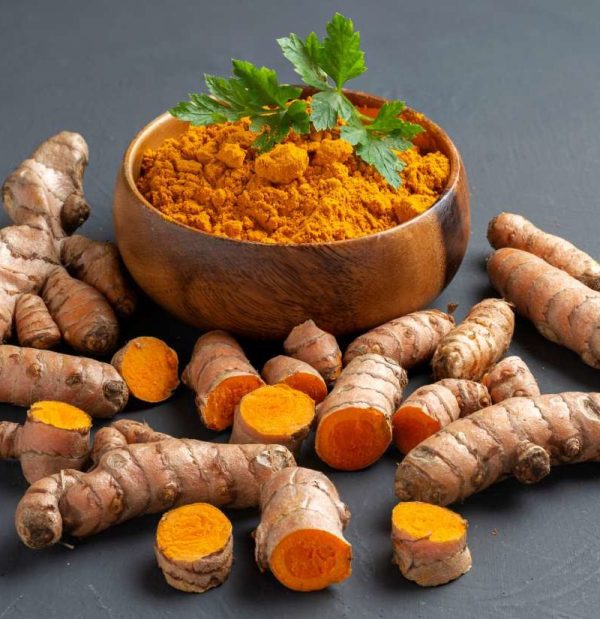
Turmeric is a common spice found in every household and is one of the most powerful anti-inflammatories. Essentially, it contains curcumin, which is a naturally occurring anti-inflammatory compound.
According to some studies, turmeric improves the symptoms of bloating and digestive discomfort in those with Irritable Bowel Syndrome (IBS). Moreover, several herb regulatory bodies around the world have approved the use of turmeric to treat digestive problems.
10. Kiwi
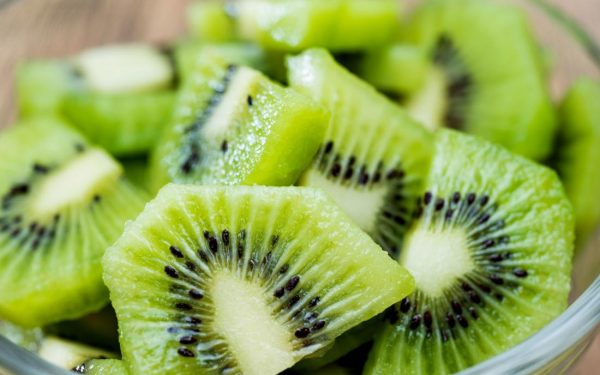
Kiwi is a popular fruit that is rich in several nutrients, including fiber and potassium. It also contains the enzyme actinidin which is known to aid with poor digestion and increases stomach emptying.
Research shows that kiwis help decrease constipation, bloating, and gas due to their ability to promote laxation and gastric motility.
Ultimately, healthy and careful inclusion of these food items in your diet help to manage bloating problems.







